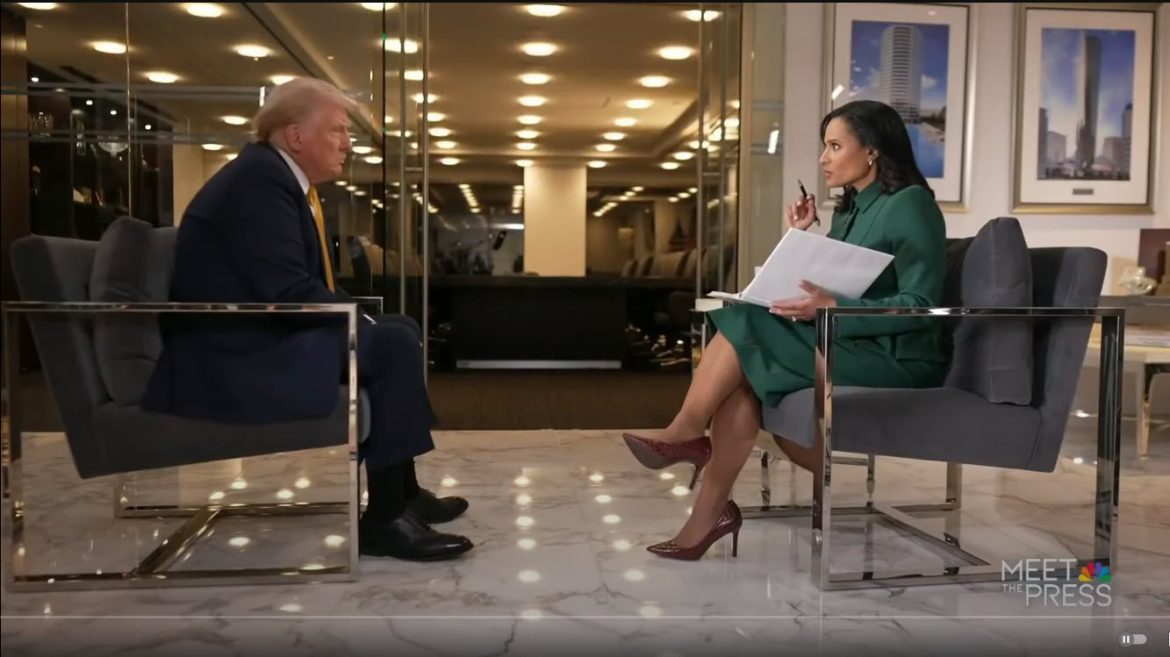President-elect Donald Trump is doubling down on his plan to reintroduce heavy tariffs on America’s major trading partners, including Mexico, Canada, and China. In an exclusive interview with NBC’s Meet the Press over the weekend, Trump reaffirmed his stance on tariffs as a cornerstone of his economic policy, sparking both criticism and praise from political and economic observers.
During the interview, Trump addressed concerns that tariffs could increase prices for American consumers, a point that has drawn scrutiny from economists and opposition lawmakers. When presented with data indicating that tariffs imposed during his previous administration cost Americans an estimated $80 billion, Trump rejected the claim, asserting that tariffs did not burden American consumers. However, he conceded that he could not guarantee Americans would not face higher costs this time around.
Economic and Strategic Rationale
Trump defended tariffs as more than just an economic tool, suggesting they hold strategic importance for national security and global leverage. “Tariffs are not just about economics; they send a message about fairness and protecting American interests,” he stated during the interview. He emphasized that these measures aim to counter unfair trade practices, reduce reliance on foreign manufacturing, and strengthen domestic industries.
The president-elect’s position marks a continuation of his previous administration’s trade policies, which were characterized by imposing tariffs on steel, aluminum, and a wide range of goods imported from China and other countries. Critics argue these measures hurt American businesses and consumers by increasing costs and disrupting supply chains. Supporters contend they are necessary to level the playing field for U.S. industries and workers.
Potential Impact on Trade Relations
The announcement has already sparked concerns among America’s trading partners. Experts predict a potential escalation in trade tensions, particularly with China, where tariffs contributed to the so-called “trade war” during Trump’s first term. Canada and Mexico, the U.S.’s largest trading partners under the United States-Mexico-Canada Agreement (USMCA), are also likely to respond critically to the proposed measures.
Global markets have shown signs of unease following Trump’s comments, with some analysts predicting a slowdown in international trade should the tariffs take effect. Economists warn that additional tariffs could further strain inflationary pressures domestically, complicating the Federal Reserve’s efforts to manage the U.S. economy.
Political Reactions
Trump’s renewed push for tariffs has drawn mixed reactions in Washington. Republican allies have largely supported the plan, framing it as a strategy to protect American jobs and industries. However, Democrats and some moderate Republicans have raised concerns over the impact on American consumers and businesses, urging the president-elect to consider alternative approaches to trade reform.
“This is a tax on the American people, plain and simple,” said one Democratic lawmaker. “It disproportionately affects working families who are already struggling with rising costs.”
Public Sentiment and Outlook
Public opinion remains divided on the issue of tariffs. While Trump’s supporters applaud his stance as a demonstration of his commitment to American workers, critics point to studies suggesting that the economic costs of tariffs far outweigh their benefits. Many economists advocate for targeted policies that address specific trade imbalances without broadly impacting consumers and businesses.
As Trump prepares to take office, the issue of tariffs is expected to become a central point of debate in both domestic and international forums. Analysts predict that the implementation of these measures could lead to shifts in global trade patterns and have lasting implications for the U.S. economy.



